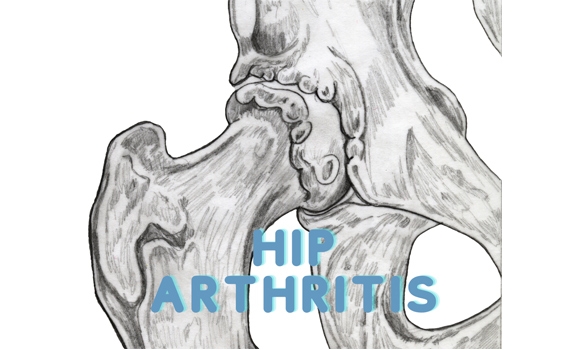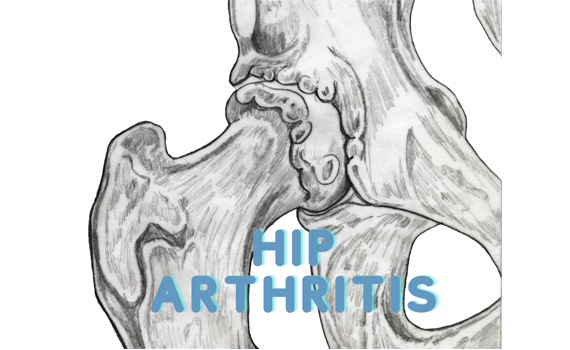

Hip osteoarthritis is one of the most common causes for pain in the hip. It is a degenerative disease, meaning that it is likely to worsen over time and is affected by your age. Arthritis can occur in almost any joint in the body, for this blog we will be looking at hip arthritis.
As adults reach their mid 40’s they are at a higher risk of developing arthritis, however it can still affect people that are much younger. Younger patients that have hip arthritis may have often been involved in an injury, rather than the joint wear and tear that occurs, as we get older.
The hip joint works like a ball and socket. Consisting of:
- The femur and the acetabulum - the bones that form the joint
- Cartilage – smooth, but firm tissue that covers each end of the bone
- Joint fluid – this helps to lubricate the joints
- Tendons and ligaments – these help to stabile the joint
- Muscle – these are essential for movement
In patients that have osteoarthritis (one of the most common forms of hip arthritis), the cartilage that protect the bone joints, will have broken down over time and essentially stop doing its job properly. This can often lead to painful, stiff and swollen hip joints. As mentioned before, this can often be linked to natural wear and tear as we get older, however it can also be caused by other factors such as trauma, fractures, dislocation and in rare cases it can be hereditary.
Hip arthritis can cause a number of different symptoms. Some of the most common symptoms include:
- Problems with walking
- Stiffness and pain
- Reduced range of movement (this will usually be as a result of the pain)
- Swelling at the hip joint
- Clicking or cracking sound at the hip joint
Unfortunately, there is no cure for hip arthritis, however there are lots of things that can be done to ease the pain and improve your mobility. Patients will usually start off with conservative methods of treatment such as exercise and physical therapy, resting the joint, taking medication (this can be either over the counter or prescription), you may also be counselled on the benefits of losing excess weight.
If you have tried these options and they do not work, or your hip arthritis has become significantly worse then you may be put forward for surgery. Before you go ahead with surgery your consultant will go over all of the essential information and different surgery procedure that could work for your individual needs.
If you have been diagnosed with hip arthritis or believe that you are suffering from this condition, please contact our team who will be happy to book you in for an appointment to discuss your options.
This article is intended to inform and give insight but not treat, diagnose or replace the advice of a doctor. Always seek medical advice with any questions regarding a medical condition.










